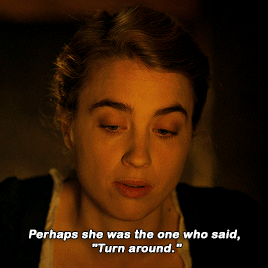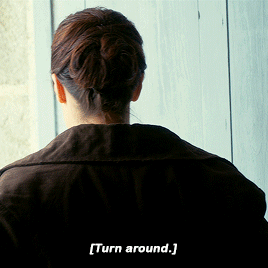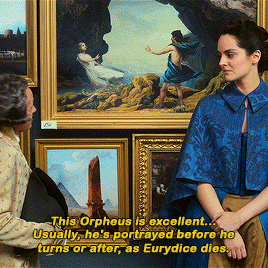fallenvictory: Central to the film is a reclamation of the…
Saturday, March 28th, 2020Central to the film is a reclamation of the Orpheus myth, a version of which the three young women read aloud together one night. Sophie registers distress at Orpheus’s fatal, selfish incompetence in looking back at Eurydice when he was told not to, and Marianne suggests he may have done it on purpose, preferring to lose the woman and savor, instead, the romance of his grief, making not “the lover’s choice, but the poet’s.” But it’s Héloïse who removes, for once, the fixation on Orpheus, his failings, and his loss. What if, she says to Marianne with an edge of defiance, it was Eurydice herself who chose art over staying together, who rather than leave the underworld with Orpheus, stopped and called out “Turn around,” preferring to remain down there and be preserved in poetry. A kind of freedom and a kind of permanence, rather than, as eighteenth-century marriage looks to be, an unwilling exchange of one for the other.
— In Portrait of a Lady on Fire, Love is a Work of Art
Reposted from https://lies.tumblr.com/post/613861477155291136.






